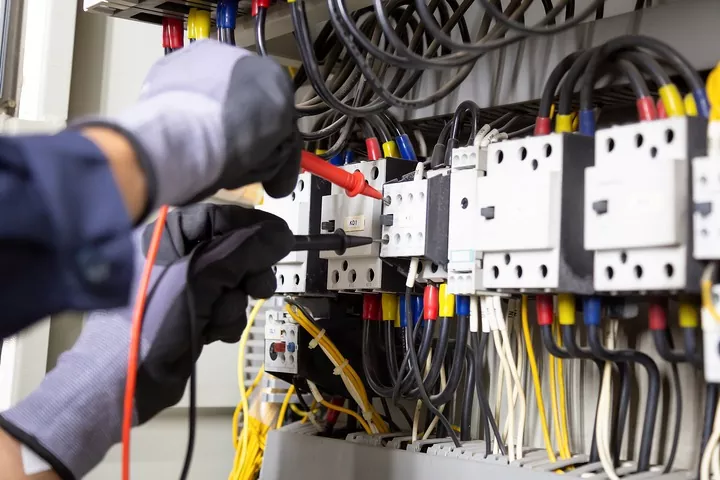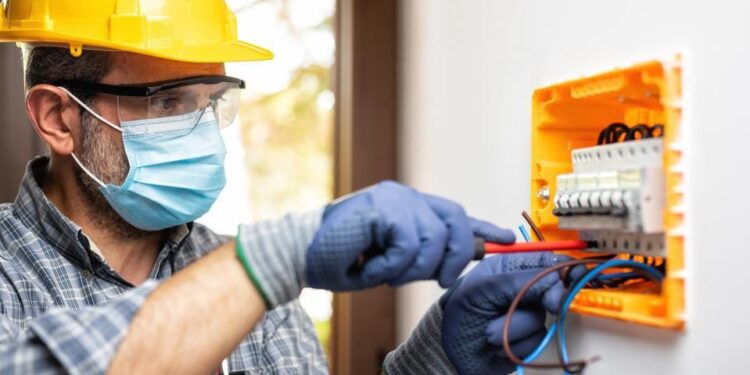Electricians play a fundamental role in ensuring the safety, functionality, and efficiency of electrical systems within homes. From installation to maintenance, their responsibilities are vast and critical. Whether it’s wiring a new house or troubleshooting electrical issues, house electricians are indispensable professionals in modern living. In this blog, we’ll delve into seven crucial responsibilities of house electricians that highlight their significance in the residential construction and maintenance sector.
House Electricians:
1. Installation of Electrical Systems
The installation of electrical systems is one of the seven crucial responsibilities undertaken by house electricians, ensuring safe and efficient power distribution throughout residential properties. One of the primary responsibilities of house electricians is installing electrical systems in newly constructed homes or during renovations. This involves carefully planning the placement of outlets, switches, lighting fixtures, circuit breakers, and wiring to ensure compliance with building codes and safety standards.
2. Wiring and Circuitry
Wiring and circuitry form the backbone of modern electrical systems, playing a crucial role in powering everything from household appliances to industrial machinery. Understanding the fundamentals of wiring and circuitry is essential for engineers, electricians, and enthusiasts alike. House electricians are experts in handling various types of electrical wiring, including copper and aluminum. They are responsible for running wires through walls, ceilings, and floors to connect electrical outlets, switches, and appliances to the main electrical panel. Proper wiring and circuitry are crucial to prevent electrical hazards such as shocks, fires, and short circuits.

3. Troubleshooting and Repairs
When homeowners encounter electrical issues like power outages, flickering lights, or malfunctioning appliances, house electricians are called upon to diagnose and repair the problems. They use specialized tools and equipment to identify faulty wiring, damaged components, or overloaded circuits, and implement effective solutions to restore electrical functionality safely.
4. Safety Inspections and Code Compliance
House electricians conduct safety inspections to assess the condition of electrical systems in residential properties. They check for potential hazards, outdated wiring, and code violations that could compromise the safety of occupants. Ensuring compliance with electrical codes and regulations is essential to prevent accidents and ensure the longevity of electrical installations. House electricians have seven crucial responsibilities, including ensuring safety inspections and code compliance are meticulously executed.
5. Upgrading and Retrofitting
With advancements in technology and changes in electrical codes, house electricians often upgrade existing electrical systems to meet modern standards and accommodate new appliances and devices. This may involve replacing outdated wiring, upgrading circuit breakers, installing ground fault circuit interrupters (GFCIs), or retrofitting homes for energy-efficient lighting and appliances.
6. Design and Planning
Before beginning any electrical project, house electricians collaborate with homeowners, architects, and contractors to design electrical layouts that meet the specific needs and preferences of clients. They take into account factors such as the size and layout of the home, the electrical load requirements, and energy efficiency considerations to create effective electrical plans.
7. Educating Homeowners
A Certified Electrician is essential for guaranteeing compliance with regulations and maintaining the integrity of electrical systems. House electricians play a crucial role in educating homeowners about electrical safety practices, energy conservation, and proper maintenance of electrical systems. They provide valuable insights on using electrical appliances responsibly, recognizing warning signs of electrical problems, and conducting routine inspections to prevent costly repairs and ensure the safety of household members.
Conclusion
House electricians are indispensable professionals who play a vital role in ensuring the safety, functionality, and efficiency of electrical systems in residential properties. From installation and troubleshooting to safety inspections and education, their responsibilities encompass a wide range of tasks essential for maintaining the electrical infrastructure of modern homes. By adhering to high standards of craftsmanship, compliance with codes, and ongoing professional development, house electricians contribute significantly to the comfort and well-being of homeowners everywhere.








Comments 1